Every actor’s (or stage manager’s) journey is unique and joining the Actors’ Equity Association (AEA) is a personal decision that only you can make. I suppose it’s appropriate that I weigh in on this topic as it’s a decision I am in the middle of making myself. My life and career have presented an opportunity which begs the question, are you ready? Your path will be different, or perhaps similar! In either case, here I am, an actor teetering on the edge of Equity.

I’ve had a healthy and successful run on the nonunion circuit, which had deterred me from taking my card. With all that work for a mature-looking character actor, why pass it up? I made a livable wage and wonderful industry connections. However, I’ve recently booked Gypsy at a union house, which will put me over my 50 weeks (see below).
The ways to get your card:
A union theatre employs you under an Equity contract.
Through membership in a sister union (SAG-AFTRA, AGMA, AGVA).
The EMC Program (50 weeks of EMC work at participating theatres).
I’m ready to take advantage of the benefits AEA has to offer. Such great benefits as minimum negotiable salaries (extra for additional tasks, overtime, etc.); safe work environment (protections against long hours, hazards, etc.); health, pension, and 401k benefits (per weeks worked/years matriculated); and access to Equity-only auditions and sign-ups.
There’s no need to rush into AEA, though, especially right out of school. It is believed, by some, that belonging to AEA makes you more professional. THIS IS A MYTH! Young actors are often chomping at the bit to go Equity because of their big Broadway dreams. By all means, dream big, but don’t forget to be realistic! Take the card prematurely, and you are competing against actors who have had more time and experience to hone their skills and mature as performers. That doesn’t make them more professional; it just gives them the edge that comes with real industry experience. That’s not to say that non-union actors don’t have what it takes. I’ve seen and worked with many non-Equity actors who could outperform some of the professionals on Broadway. Work ethic makes a professional, not union status.
There is no shortage of non-union opportunity out there that will help bolster your career. These are great experiences to cut your teeth on and build your resume. Many national tours are non-union (Mamma Mia!, RENT, etc.) and AEA exerts no jurisdiction (currently) over cruise ships, which is ideal for all actors, union and non-union alike. And, let’s not forget the regional Equity houses that need non-union actors to fill out their shows (the EMC program) once they’ve given out their Equity contracts. Alas, the non-union scene is not devoid of pitfalls. Without the union in your corner, you are at the mercy of your employer’s discretion, be it the pay scale or a safe work environment. Watch out for yourselves, and each other. Without a union, the only one looking out for you is, you!

AEA’s website states, “If you aspire to a career in the theatre – aspire to get your Equity card.” The quote is accurate, to an extent. I would amend it to say, “If you aspire to a career in the theatre – aspire to work.” There is no shame in non-union theatre. And, a working actor is just that, working. I would not trade my career up until now for anything, but I am ready to face a new set of challenges, and hopefully, continue growing as a performer. AEA offers plenty of benefits and protections for its some 50,000 actors, and that’s fantastic. It’s a close-knit community which provides both a support system and resources. To join or not to join…meh, not really a question. As long as you approach each opportunity with an open mind and professional work ethic, your journey is guaranteed to find success.

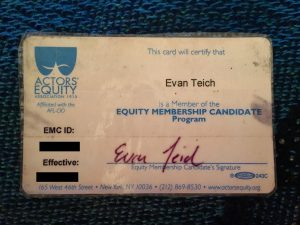

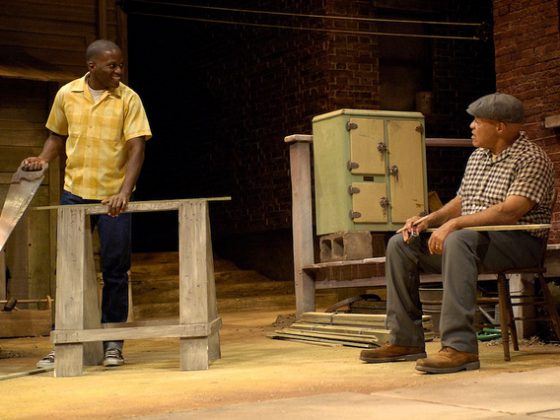

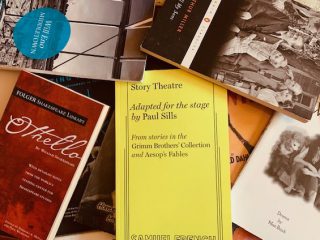


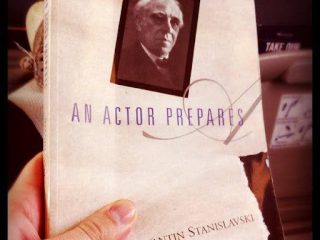
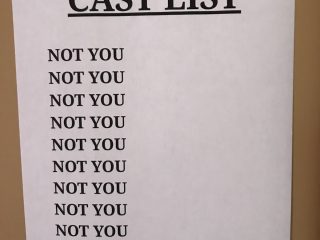
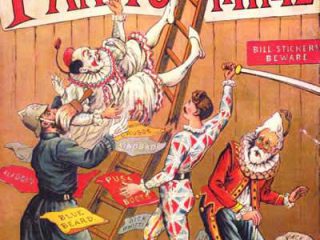





9 comments
One other point about non-union theatre work. All performers who work for non-Equity producers are helping to undermine the benefits and protections Actors Equity Association has obtained for actors over decades of hard negotiations and solidarity. Non-Equity producers undercut these standards and, in doing so, exploit the eagerness and desperation of non-union performers of all ages.
Why are my comments still “awaiting moderation’ after 36 hours?
Great point, John. It is an unfortunate truth that some nonunion producers do take advantage of eager young actors just starting out in the business. That said, we can’t shift blame to those actors. True, there is the risk of being exploited, but how else are they going to cut their teeth in the industry? If it had not been for non-Equity work, I would not have the skills and preparedness equipped to join the union. I also don’t think it is fair to incorporate all nonunion producers under one blanket statement. I have known quite a few who were more than fair in how they conducted their business.
All things being equal, that would be right. But all things are not equal in the real world. Every non-Equity tour that goes out denies Equity actors work. There are plenty of places to act that do not compete with professional actors. The non-Equity producers are simply exploiting performers by denying them a fair wage rate, health coverage and pension contributions. Like Bob Dylan said, “Some steal with a gun; others with a fountain pen.” There is no shortage of people trying to make money at the expense of others. Acting is a profession and those in it deserve a fair wage and dignity. B and C-level productions trading on the Broadway reputation of a title are also scamming the public. Not for a minute would they consider advertising themselves as non-pro productions. But that is what they are. Once you join Equity and spend a few years working at that level, see how you feel about it.
Thank you for your candor, John, but I find your argument rather divisive. I say again: as a professional, it is not union status, but my work ethic that defines me. I have spent much of my career working with and amongst Equity actors, and I feel just fine about my decision to hold off on my card until now. There are plenty of opportunities for both Equity and non-Equity performers, but highlighting one group as professional and the other as anything but is highly detrimental to our community. I can appreciate the hard work and tenacity necessary to become Equity, but do not discredit or diminish the work of those who are still striving towards it or who are simply content to work nonunion, as each requires the same resolve.
Alright. I was a little harsh there. It is you that have shown more candor since you are willing to consider my argument while I have essentially rejected yours. Nonetheless, the reason non-Equity tours exist is solely to undercut Equity rates and conditions. Equity producers have to post bonds that ensure the actors will not be stranded if the producer goes bankrupt. Equity actors have health coverage, assurance of at least minimum wage rates set by contract, and pension credits toward the future if an when the get enough work to qualify. Equity actors have banded together, not to punish producers, but to make certain that they are not alone in dealing with producers. Without minimum standards, desperate actors will simply bid themselves down to the lowest possible level. A union stops this. Of course, labor unions are not all roses and lollypops either, but it is the top of the line, such as it is. I am not intending to discredit you by saying that there are very few highly skilled actors in the US that remain non-Equity. Being Equity does not save the world, but remaining non-Equity when you have the skills to compete professionally does help non-Equity producers subvert the union and its, yes, professional standards. The only actors who can dictate their own terms of employment on the stage are the established stars. The supporting performers and dancers typically work for scale. There is no scale in non-Equity productions. Or scale is whatever the producer can whittle a cast down to. You may be grateful for the experience and chance to work, but the producer is ultimately feeding off the inexperience or insecurity or both of the cast members. Not every Equity member is a stunning talent and not every non-Equity performer is just an earnest amateur, but there is a definite trendline. Ultimately, the performer with a future will almost always find it with Equity productions. There are no non-Equity stars for a reason.
I joined Equity in 1972.. and have been equity rep on numerous productions.
Hi Evan,
I am in a predicament where I have already joined a sister union and have the opportunity to enroll in EMC with a show currently, but the contract I will be under exceeds 25 weeks? Will I have to become equity during the show run or would I just become equity on the next equity show contract?
In seeking out an agent, is it beneficial to be equity?